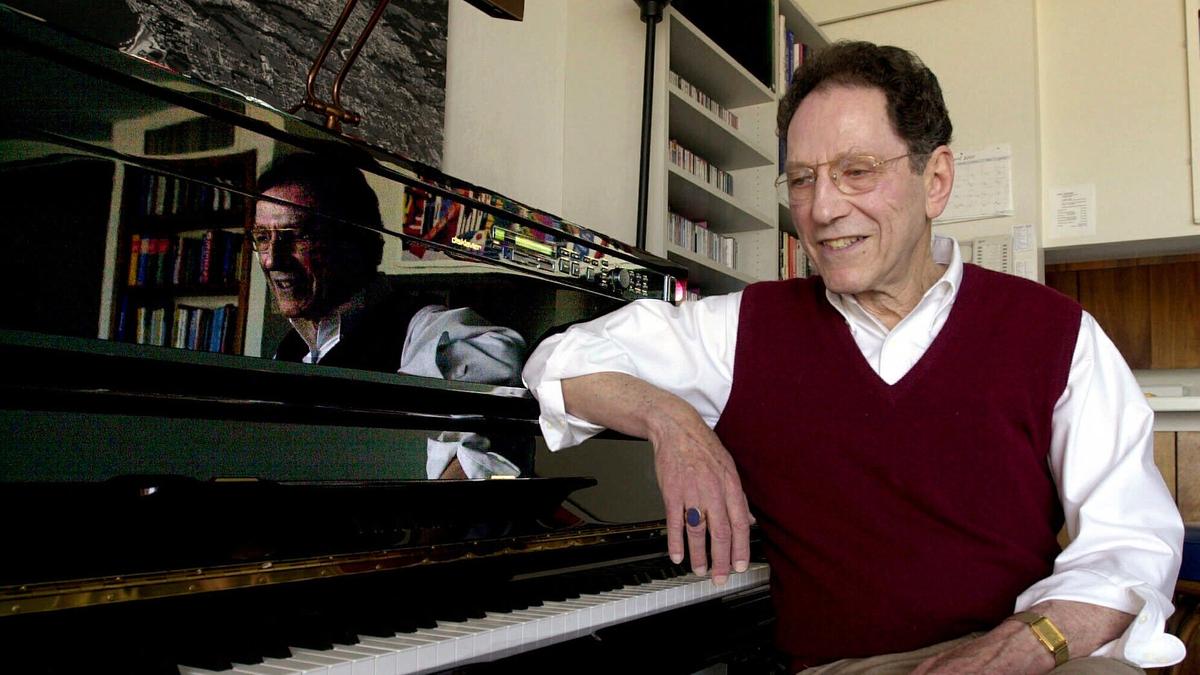Tom Lehrer, the math prodigy who became an influential musical satirist with his barbed views of American social and political life in the 1950s and 1960s, has died at the age of 97, according to news reports.
Lehrer died at his home in Cambridge, Massachusetts, on Saturday (July 26, 2025), his longtime friend David Herder told the New York Times. No cause of death was specified.
A well-calculated move: On Tom Lehrer
Lehrer’s career as a musician and revered social commentator was little more than a happy accident that began with composing ditties to amuse classmates at Harvard University. His heyday lasted about seven years and, by his own count, produced only 37 songs before the reluctant performer returned to teaching at Harvard and other universities.
“There’s never been anyone like him,” Sir Cameron Mackintosh, the Broadway producer who created “Tom Foolery,” a revue of Lehrer songs, told BuzzFeed in 2014. “Of all famous songwriters, he’s probably the only one that … is an amateur in that he never wanted to be professional. And yet the work he did is of the highest quality of any great songwriter.”
As the U.S. nestled into the post-war complacency of the 1950s, the liberal-leaning Lehrer was poking holes in the culture with his songs while maintaining an urbane, witty air.
Some of his works reflected his mathematical interests – “New Math” about subtracting 173 from 342 and “Lobachevsky” about a 19th-century Russian mathematician – but his meatier songs were deemed by some to be too irreverent and shocking. In 1959 Time magazine lumped him in with groundbreaking comics Lenny Bruce and Mort Sahl as “sicknicks” who had “a personal and highly disturbing hostility toward all the world.”
The song “I Wanna Go Back to Dixie” looked at racism in the South (“The land of the boll weevil where the laws are medieval”) while “National Brotherhood Week” took on hypocrites (“It’s only for a week so have no fear / Be nice to people who are inferior to you”). “Be Prepared” exposed the dark side of a Boy Scout’s life, “I Got It from Agnes” was about venereal disease, and “We Will All Go Together When We Go” addressed nuclear Armageddon.
“If, after hearing my songs, just one human being is inspired to say something nasty to a friend, or perhaps to strike a loved one, it will all have been worth the while,” Lehrer wrote on the notes that accompanied one of his albums.
Ode to elements
Thomas Andrew Lehrer was born on April 9, 1928, in New York. He grew up in the Big Apple listening to musical theater and one of his first works was “The Elements,” a recitation of the periodic table set to a Gilbert and Sullivan tune. He enrolled at Harvard at age 15 and his “Fight Fiercely, Harvard” with the line “Won’t it be peachy if we win the game?” became a popular spoof of the school’s sports fight song.
He performed at campus functions and, while in graduate school, compiled enough material to record an album in a Boston studio. He sold “Songs by Tom Lehrer” around campus and it developed a word-of-mouth cult following around the country.
After serving in the U.S. Army from 1955 to 1957, Lehrer began performing and recorded more albums but was losing his zest for music. By the early 1960s, working on his doctorate – which he never finished – and teaching became greater concerns, although he did contribute songs to the TV news satire show “That Was the Week That Was” in 1963 and 1964.
Lehrer taught math at Harvard and the Massachusetts Institute of Technology and musical theater at the University of California-Santa Cruz.
He said he found math and songwriting to be similar – both a matter of fitting the pieces together in search of a proper and satisfying outcome. When asked why he abandoned musical satire, he said cultural changes had created issues such as abortion and feminism that were too complicated to satirize.
Famously, he quipped that “political satire became obsolete when Henry Kissinger was awarded the Nobel Peace Prize” after the award was given to the controversial secretary of state in 1973.
Lehrer, who never married, also said the things he once found to be funny were now scary.
“I often feel like a resident of Pompeii who has been asked for some humorous comments on lava,” he told People magazine in 1982.
Lehrer’s impact lasted decades after he stopped performing. His work was often featured on the syndicated Dr. Demento radio show and “Harry Potter” star Daniel Radcliffe dazzled a talk show audience by doing “The Elements” on a television show in 2010. The rapper 2 Chainz sampled part of Lehrer’s “The Old Dope Peddler” in a 2012 song.
Published – July 28, 2025 10:45 am IST























